Поурочный план
Тема урока The history of timekeeping devices
Наименование модуля /дисциплины English
Подготовил педагог Курманова Д.К.
"12" 05 2021 года
1. Общие сведения
Курс, группы 1 курс
Тип занятия
2. Цели, задачи
Образовательная: Формирование у обучающих способностей свободного устного и письменного общения, воспринимать на слух иноязычную речь.
Развивающая: Развитие способности логического мышления, умение анализировать, память, внимание, развивать полиязычную и поликультурную личность.
2.1 Перечень профессиональных умений, которыми овладеют обучающиеся в процессе учебного занятия
2.2 Результаты обучения:
1)Умеют мыслить критический
2) Понимать текст и обсуждать
3) Использование новых слов
2.3 Критерии оценки:
1)Понимание текста, отвечать на вопросы верно, перевод предложений и выполнение заданий без ошибок 90-100%
2)Понимание текста, отвечать на вопросы, допускать в переводе 2-3 ошибки при выполнении задний 75-85%
3)Количество ошибок в вопросах и задачах больше и количество ошибок в переводе более 5
55-70%
3. Оснащение занятия
3.1 Учебно-методическое оснащение, справочная литература
Action for Kazakhstan Grade 11 https://expresspublishing.kz/action-11/
3.2 Техническое оснащение, материалы
Interactive board, Computer
Ход занятия
I. Warming up: 1) Organization moment – 1-2 min
- Good morning, dear students! How are you? I’m glad to hear it!
2) Checking up the home task: - 5 min
- Your home task was to do exercises 3-4
II. Presentation
Work with presentation “The history of timekeeping devices” and do exercises
| Planned timings | Planned activities (replace the notes below with your planned activities)
| Resources | |||||||||||||||||||||||||||||
| Start 1 min
4 min
| (W) Lead in. Active method “Golden key” Ss look at the pictures and answer: What is the common of these pictures? What is the theme of our lesson?
(I) (FA) Pre-teach. Matching. Ss match given pictures with their names and give short information which they have learned in the previous lesson. Assessment criteria: Match the pictures with their names Give short information about timekeeping devices
High level – 3 points Mid level – 2 points Low level – 1 point
| PPT Slide 1 (pictures)
Envelope 1 (pictures of timekeeping devices and cards with names)
PPT Slide 3 (pattern of right answers) | |||||||||||||||||||||||||||||
| Middle 2 min 4 min 8 min 10 min 7 min | (P) Gist question. Active method “Right order” Ss determine the correct order of given pictures according to their invention. (I) First listening. Ss watch the video and check answers to the gist question. (I)Detailed comprehension tasks. Differentiated task Ss choose colored envelope with tasks according to their abilities Low-leveled task. Choose the correct answer. The first sundials were simply sticks placed in the ground. Plato, the legendary Greek philosopher, created the candle clock through the use of the water clock. King Alfred the great used the system with 24 candles. Mechanical clocks was invented after quartz watches. Galileo Galilei experimented the pendulum clock. Wristwatches were first worn by military men. Quartz Watches were invented in 1927. Quartz crystals were used to measure time in the atomic clock. Answers: T F F F T T T F Mid-leveled task. Complete the gaps. The first sundials were simply sticks placed in the ground that showed time by ___ and direction of the resulting shadow. A T-shaped bar placed in the ground, dividing between ___ and sunset into 12 parts. Plato, the legendary Greek philosopher, created the ___ through the use of the water clock. This candle has evenly spaced markings on it which indicates the ___ of time. ___ were first worn by military men. Quartz ___, together with its piezoelectric ability, made Quartz Watches the most accurate time-keeping devices. Answers: length sunrise alarm clock duration wristwatches crystals High-leveled task. Describe each timekeeping device using new topical vocabulary. (I)Listening for detailed comprehension
(G) (FA) Active method “Cluster” Ss make a cluster and talk about the importance of timekeeping devices using given pictures. Assessment criteria: Apply speaking skills in a social environment. Express thoughts systematically and fluently. Keep speech norms while speaking.
Peer assessment (I)Grammar. Differentiated task. Active method “Brainstorming”. How do we form Present Perfect Active and Passive? Are there any verbs in Present Perfect Active and Passive in our listening text? (have you ever wondered, has passed, etc.) Ss choose the task according to their ability. Low-leveled task. Find and write down the Passive Voice combinations. Water clocks have been invented by an Egyptian pharaoh. A T-shaped bar placed in the ground, dividing between sunrise and sunset into 12 parts. Wristwatches were first worn by military men. Quartz crystals, together with its piezoelectric ability, made them the most accurate time-keeping devices in the 1930s. Galileo Galilei, father of science, experimented the pendulum which was a way of marking off small intervals of time accurately. Have you ever wondered how time was counted in the past? Answers: 1, 3, 6. Mid-leveled task. Use Present Perfect Active or Passive of the verbs in brackets to complete the sentences. Egyptians ... (to make) sundial. T-shaped bar ... (to place) in the ground. First clock ... (to build) by Pope Sylvester the Second. Galileo Galilei ... (to experiment) the pendulum. We … (to learn) the Passive Voice already. Quartz Watches ... (to invent) in 1927.
Teacher checks cards and give the written comments. | pictures of timekeeping devices https://www. youtube.com/ watch? v=RcwOBkghw WA&t=29s envelopes of different colors with tasks
Pictures of timekeeping devices, whatman paper, glue, markers
Cards with tasks
| |||||||||||||||||||||||||||||
| End 4 min | (I)Active method “Plus-Minus-Interesting”. Reflection.
| Cards | |||||||||||||||||||||||||||||
| Additional information | |||||||||||||||||||||||||||||||
| Differentiation – how do you plan to give more support? How do you plan to challenge the more able learners? | Assessment – how are you planning to check learners’ learning? | Health and safety check Values links | |||||||||||||||||||||||||||||
| 1)Ss choose colored envelope with tasks according to their abilities Mid-leveled task. Complete the gaps. 2) Ss choose the task according to their ability. | 1)Ss match given pictures with their names and give short information which they have learned in the previous lesson. Assessment criteria: Match the pictures with their names Give short information about timekeeping devices 2) Ss make a cluster about the importance of timekeeping devices using given pictures. Assessment criteria: Apply speaking skills in a social environment. Express thoughts systematically and fluently. Keep speech norms while speaking. | Health and safety requirements are taken into account. Cooperation – group and pair work Respect – listening to other students’ opinions during discussions Honesty – students cite the sources used. History, geography | |||||||||||||||||||||||||||||
| Reflection Were the lesson objectives/learning objectives realistic? Did all the learners achieve the lesson objectives/ learning objectives? If not, why? Did my planned differentiation work well? Did I stick to timings? What changes did I make from my plan and why?
| Use the space below to reflect on your lesson. Answer the most relevant questions from the box on the left about your lesson. | ||||||||||||||||||||||||||||||
|
| |||||||||||||||||||||||||||||||
| Summary evaluation
What two things went really well (consider both teaching and learning)?
1:
2:
What two things would have improved the lesson (consider both teaching and learning)?
1:
2:
What have I learned from this lesson about the class or individuals that will inform my next lesson?
| |||||||||||||||||||||||||||||||

 Получите свидетельство
Получите свидетельство Вход
Вход


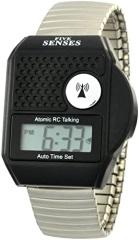
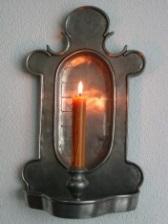
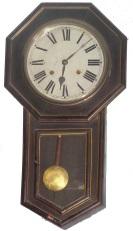
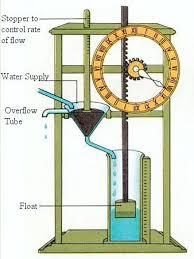
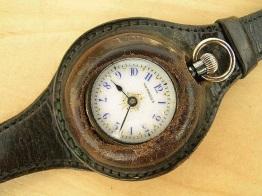
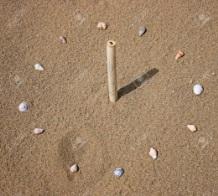
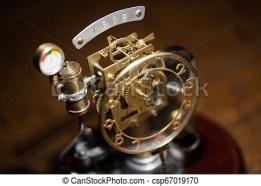
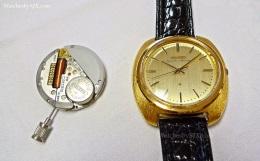
 Low-leveled task. Answer True or False.
Low-leveled task. Answer True or False. Mid-leveled task. Complete the gaps.
Mid-leveled task. Complete the gaps. High-leveled task. Describe each timekeeping device using new topical vocabulary.
High-leveled task. Describe each timekeeping device using new topical vocabulary. Teacher checks cards and give the written comments.
Teacher checks cards and give the written comments.
 Low-leveled task. Find and write down the Passive Voice combinations.
Low-leveled task. Find and write down the Passive Voice combinations.








 The history of timekeeping devices (198.67 KB)
The history of timekeeping devices (198.67 KB)
 0
0 3202
3202 148
148 Нравится
0
Нравится
0



